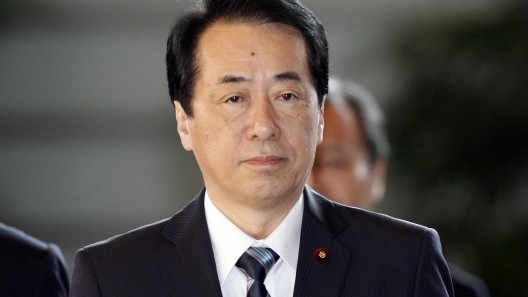
Kan, Japan's fifth premier in four years, was later due to address the nation in a televised press conference and then head to the palace of Emperor Akihito to be formally sworn in along with his ministers. In a show of continuity from the previous administration, Kan kept 11 of 17 ministers in their posts, including Foreign Minister Katsuya Okada, Defence Minister Toshimi Kitazawa and Transport Minister Seiji Maehara.
Kan, the former finance minister, chose his deputy, fiscal hawk Yoshihiko Noda, to succeed him as the steward of Asia's biggest economy. Noda takes over the job as pressure mounts to revive the economy after two decades of stagnation and to slash Japan's public debt mountain, which is nearly twice the size of the country's gross domestic product.
Reading out the cabinet names was Yoshito Sengoku, who became Kan's right-hand man and press spokesman as chief cabinet secretary. "Prime Minister Kan has appointed the ministers, mindful of the need to form a government with professionalism, very clean politics and ability to govern," he said, calling the cabinet "young, fresh and enthusiastic about their jobs."
One new cabinet face was former model and TV presenter Renho, 42, who uses only one name. Famed for grilling bureaucrats for wasting public funds, she takes over as minister in charge of administrative reform. The new premier, a one-time leftist activist popular for his plain-speaking style, is riding an early wave of support, with approval rates above 60 percent, after pledging to clean house in his Democratic Party of Japan (DPJ).
With weeks to go until upper house elections, Kan has reshuffled the party leadership to sideline DPJ heavyweight Ichiro Ozawa, dubbed the "Shadow Shogun", whose money scandals have damaged the party's credibility.
Kan replaces Yukio Hatoyama, who last week stepped down, tearfully apologising for his own political funding irregularities and badly mishandling a row over a US marine airbase on the southern island of Okinawa. Hatoyama bowed out after giving in to Washington and reneging on an election pledge to move the unpopular base off Okinawa, having strained ties with Japan's bedrock post-war ally for months.
Kan, in a weekend talk with US President Barack Obama, started to rebuild the relationship, pledging to abide by an agreement to build a new US base on Okinawa, originally reached by previous governments in 2006.
Relations are likely to be smoother under Kan, said top Obama aide Jeffrey Bader, the National Security Council's director for Asian affairs. "I have every reason to expect that Mr. Kan will pick up where the cabinet has left off in the last two months and that we won't find ourselves back in some of the difficult times we had last September and October," Bader said.
Kan is likely to make his international debut at G8 and G20 summit meetings in Canada at the end of the month. He does not plan to visit the Shanghai Expo this weekend as his predecessors had planned to do, reports said. The new prime minister started his political life as a citizens' activist for environmental, pacifist and feminist causes.
He gained kudos when, as health minister in the 1990s, he unveiled government culpability in a scandal over HIV-tainted blood that infected more than 1,000 people with the virus that causes AIDS. Unlike other top DPJ figures, Kan was never a member of the conservative Liberal Democrats, who ruled Japan almost without break for half a century before they were ousted at the polls last August.
Newspaper editorials have praised his humble beginnings as the "son of a salaryman" and drawn a contrast with the privileged background of his predecessor, Yukio Hatoyama, the millionaire-grandson of a prime minister. One company has started selling "Yes We Kan" T-shirts online.


1723278472-0/BeFunky-collage-(4)1723278472-0-165x106.webp)


1732518687-0/Copy-of-Untitled-(78)1732518687-0-270x192.webp)











COMMENTS
Comments are moderated and generally will be posted if they are on-topic and not abusive.
For more information, please see our Comments FAQ